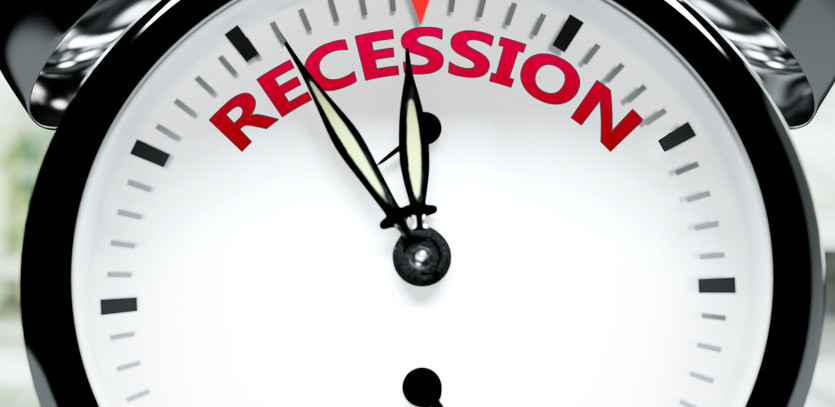As the ebb and flow of the economy unfolds, periods of growth are invariably followed by moments of contraction. It's in these challenging times, known as recessions, that the prudent preparation of our personal finances is tested most fiercely. Many feel powerless against these macroeconomic phenomena, believing the forces at play are too great for a single individual to counter.
However, this article aims to dispel such notions. It seeks to equip you with an empowering truth: while we cannot prevent the onset of a recession, there's a great deal we can do to bolster our financial fortresses in preparation.
From strengthening savings and reassessing spending, to paying down debt and maintaining a long-term vision for investments, these strategies can help ensure you not only survive a downturn but also emerge with your financial health intact.
As we delve deeper into the intricacies of recessions and discuss practical strategies to navigate them, we hope this guide becomes your trusted companion in your journey toward financial resilience in the face of economic uncertainty.
Key Tips for Recession Preparation
In the face of a possible economic slowdown, several proactive steps can enhance your financial resilience. First and foremost, assess your current spending habits. Are there areas where you could cut back or expenses you could eliminate altogether? Rethinking your budget could free up more money for saving and paying down debt.
Secondly, reinforce your financial safety net by bolstering your savings. Aim for an emergency fund that can cover three to six months' worth of expenses, as this could sustain you through potential periods of unemployment or reduced income.
Third, aim to reduce your outstanding debts, focusing primarily on high-interest obligations. Clearing these debts can ease your monthly financial commitments, giving you more flexibility in a potential downturn. If your savings are adequate, consider paying down credit card debts to lessen the burden of interest accumulation.
Lastly, always keep a long-term perspective on your investments. It may be tempting to react drastically to market volatility, but a well-diversified, long-term investment strategy is typically better equipped to weather economic ups and downs.
Understanding Recessions
A recession is a significant decline in economic activity spread across the economy, lasting more than a few months, and is visible in GDP, income, employment, industrial production, and wholesale-retail sales. The National Bureau of Economic Research (NBER) officially declares the onset and end of a recession based on these key indicators.
While the definition might sound complicated, the effects of a recession are usually noticeable to the average person. During such periods, you might observe a slowdown in earnings growth, higher rates of job loss among peers, and increased challenges in achieving your financial objectives. However, by employing the strategies outlined in this guide, you can better safeguard your financial well-being during a recession.
Building up Savings
Establishing a solid emergency fund, if you haven't already, is the first line of defense against a financial downturn. An emergency fund should ideally hold three to six months' worth of expenses in cash to aid you through a potential job loss.
Under certain conditions, it might be advisable to save even more. If you're in a senior career position or have hefty fixed expenses like a large mortgage, you might need to build a bigger emergency fund. If that seems daunting, begin with what you can afford and gradually add to it.
Reevaluating Your Budget
In the process of building your emergency fund, you might need to revisit your spending habits. Jovan Johnson, a Certified Financial Planner (CFP) at Piece of Wealth Planning, stresses the importance of intentional spending, particularly during challenging times.
A zero-based budget strategy can be a powerful tool in managing your finances. With such a system, every dollar earned is allocated towards a specific expense. Any surplus income is directed towards savings categories, helping you avoid unnecessary luxuries that may impede your financial goals.
Eric Roberge, CFP at Beyond Your Hammock, encourages proactive action to streamline your cash flow, enabling you to create a rainy-day fund. This may involve delaying major purchases, reducing unnecessary spending, and prioritizing needs over wants.
Clearing High-Interest Debt
Another preparation tactic for a recession is paying off or reducing your debt. This can lessen your monthly financial commitments, allowing you to navigate any financial hurdles during a recession more comfortably. Debts with high-interest rates, such as credit card debts, should be addressed first. However, if you're yet to establish an emergency fund, focusing on that could be more sensible than aggressively paying down debt.
Long-Term Investment Focus
During periods of economic uncertainty, it might be tempting to alter your investment strategy in an attempt to avoid potential losses. However, it's essential to remember that a well-crafted, long-term investment plan should already factor in the inevitability of market downturns.
Attempting to time the market or shift to "recession-proof" investments can be a risky strategy and may lead to missed opportunities. A well-diversified, long-term investment approach is typically more successful over time, regardless of temporary market conditions. Such an approach doesn't require drastic changes in anticipation of a recession, as it inherently accepts the cyclical nature of economies.
If you're still accumulating wealth and contributing regularly to retirement accounts, you may actually benefit from a recession. As stock prices fall, consistent contributions can purchase more shares, potentially boosting your returns in the long run. However, if you're nearing retirement, you might need to revisit your risk profile and consider shifting to more stable investments, given that significant losses early in retirement can impact the longevity of your portfolio.
Avoiding Common Mistakes During a Recession
Despite having a robust emergency fund and an all-weather investment portfolio, it's essential to remain vigilant of common mistakes during a recession. Avoid making emotional decisions based on market fluctuations and refrain from taking on substantial expenses that might strain your finances further.
Frequently Asked Questions
Q1: How Do I Adjust My Portfolio If I'm Nearing Retirement?
A: If you're nearing retirement, it's particularly important to manage the level of risk in your portfolio. This may involve moving towards more stable investments that are less susceptible to market volatility, such as bonds or fixed-income assets. Consult with a financial advisor to tailor your investment strategy according to your risk tolerance, financial goals, and the time remaining until retirement.
Q2: When Was the Last Recession?
A: The last recession in the U.S. officially began in February 2020 and ended in April 2020. It was triggered by the global COVID-19 pandemic, which disrupted economic activities worldwide. This recession, while shorter in duration than most, had a significant impact on employment rates and economic growth.
Q3: What Causes a Recession?
A: Recessions can be caused by a variety of factors, including economic bubbles bursting (like the housing bubble in 2007), policy decisions that lead to unsustainable inflation, or sudden shocks that disrupt normal economic conditions, such as a global pandemic. It's important to remember that recessions are part of the normal economic cycle and typically followed by periods of economic recovery and growth.
Q4: How Should I Manage Fixed-Income Assets During a Recession?
A recession often brings forth a whirlwind of financial concerns, leaving many to ponder the best course of action for their various investments. One question that frequently arises revolves around the handling of fixed-income assets. How does one maintain a balance between the need for liquidity and the desire to protect savings from the eroding impact of inflation?
Inflation is a specter that haunts savings. It silently chips away at the purchasing power of your stashed-away money. In light of this, fixed-income investments, such as Savings I Bonds or Certificates of Deposit (CDs), become increasingly attractive due to their potential to provide returns that track, or even outpace, inflation.
However, during a recession, liquidity - the ease with which you can access your funds - takes on increased importance. Job losses, pay cuts, and other unforeseen expenses can emerge during economic downturns, creating a need for readily accessible cash.
Given this balancing act, what is the best course of action? The recommended strategy is a two-pronged approach: maintain liquidity for immediate needs and still protect against inflation.
Start by ensuring that your emergency funds - typically equivalent to three to six months of living expenses - are tucked away in a savings account that you can readily access. This cushion will be your first line of defense against unexpected economic shocks.
Once you've secured your emergency fund, the next step is to diversify your remaining assets into fixed-income investments. These investments can guard your funds against the depreciative effect of inflation. For instance, as of now, a Savings I Bond offers a return of 6.89%—a more competitive yield compared to the market's current performance.
However, remember that not all savings accounts are created equal. A high-yield savings account, for example, can offer a return of up to 4%, which far surpasses the typical 0.24% interest rate provided by a standard bank account.
In summary, the optimal strategy is to spread your savings across different accounts and investment vehicles. This diversification will maximize your returns while ensuring you have access to funds in case of emergencies. And, once your savings are secured, don’t overlook investing as a mechanism to build wealth. When the storm of recession passes, you'll find yourself in a much more comfortable financial situation, ready for whatever the economic tides bring next.





